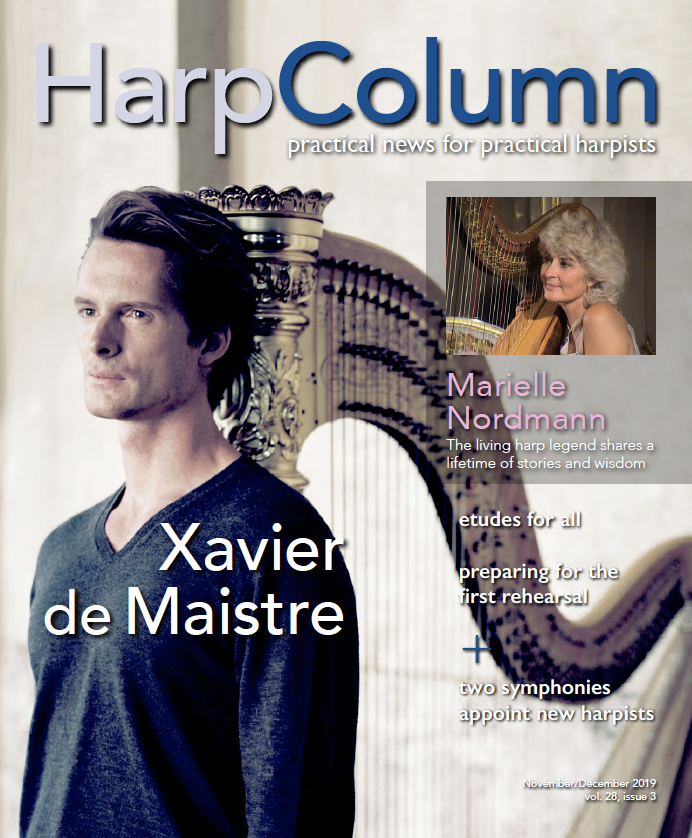—by Wendy Kerner
Not long ago I received a call from a colleague who runs a very fine concert series. They had a Russian string ensemble coming from Moscow to perform in a few weeks, and she had just learned that two of the pieces they would be playing included harp. They would not be bringing a harpist from Russia, and she wondered if the date worked for me. There would be one rehearsal just before the concert, and then the performance. The date was good, and I was given the contact information for the conductor to work out the details. Fortunately, he had lived in America for several years and spoke fluent English, so it was not hard to talk with him.
Both the works I would be playing were recent contemporary works by an American composer, and one would be a U.S. premiere, so there were no recordings available. He emailed me the parts, and he also emailed me a video of the group rehearsing the two pieces, with the camera trained on the conductor, and with him giving cues for the harp entrances—what a delightful surprise! I worked hard on the music and prepared with that video a great deal.
The day of the concert came, and I arrived early at the location—a beautiful new hall. I tuned and warmed up, but the time of the rehearsal’s start came and went, with no sign of the group. They finally arrived about 20 minutes late, and the concertmaster came over and, in very heavily accented, broken English, he introduced himself. I asked him what pitch they tuned to and found out it was 442. That meant a quick retuning. Then he asked me if I could play the pieces without a conductor. I was puzzled, especially after they had so carefully prepared the video I had worked with. Gradually I understood that he was trying to explain to me—the conductor had become ill and was in the hospital, so we would have to play the concert without him! The concertmaster told me he would give me some cues, even though one of the pieces was a violin concerto and he was the soloist. We began rehearsing. The group was amazing—such fantastic intonation and ensemble, it was a joy to play with them, but it was certainly more challenging without the conductor, though the concertmaster and principal cellist did nod to me occasionally. When the group would stop and discuss a section, they would speak entirely in Russian. Occasionally they would turn to me and ask, “Is okay?”
I was very pleased with how the concert went, as was the audience, but it was another example of never really knowing what you can expect, even when you think you have it all figured out! •





